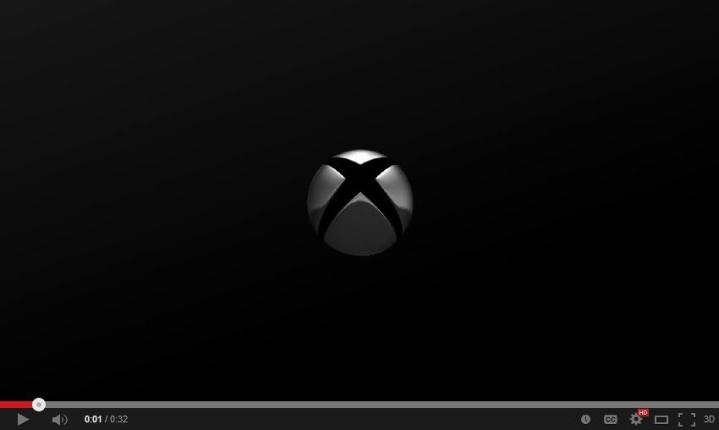
Microsoft and Electronic Arts have come under fire following the revelation that both companies were paying YouTube content creators to promote their products, then requiring them to not disclose that they were being paid. Although that might not be the most ethical thing, it doesn’t appear to violate Federal Trade Commissions guidelines, according to an FTC employee speaking to Polygon.
“The guides are guidance to help advertisers and endorsers comply with federal advertising law,” Betsy Lordan from the FTC Office of Public Affairs said. “They are not legally enforceable, and there are no monetary penalties or penalties of any kind associated with them.”
The issue first came to light when it was revealed that Microsoft and Machinima were accused of paying YouTube content creators to promote the Xbox One. The YouTuber would receive $3 for every 1,000 pageviews, up to 1.25 million page views, and the requirements were straightforward enough. The video had to feature at least 30 seconds of Xbox One gameplay footage, mention the console by name, and the creator’s couldn’t “say anything negative or disparaging about Machinima,Xbox One, or any of its Games.”
In itself, there is nothing inherently wrong with that. Companies like Microsoft have the right to market their product how they like. The issue, however, came about because those content creators were reportedly made to sign a non-disclosure agreement that prohibited them from telling anyone that they were paid. Not only does that raise several ethical questions, it seemed to be at odds with FTC guidelines, which prohibit an endorser of a product from taking money from the seller of that product without disclosing it.
The actual guidelines state:
“When there exists a connection between the endorser and the seller of the advertised product that might materially affect the weight or credibility of the endorsement (i.e., the connection is not reasonably expected by the audience), such connection must be fully disclosed.”
Although Lordan wouldn’t specifically comment on whether or not the disclosure met with the FTC’s standards, it turns out it doesn’t matter. The FTC guidelines are just that – guidelines. They are not binding laws, but rather just general statements meant to help make sense of the complex legalities surrounding federal advertising laws.
Violating these guidelines wouldn’t in itself lead to any legal repercussions. Instead it would, at worst, lead to a warning from the FTC, which could turn into an investigation. Lordan would not comment on whether or not the FTC was looking into these particular matters, and as a rule the FTC doe not disclose ongoing investigations until they are complete.
“So (for example) if an advertiser is not following these guidelines, there is no penalty,” Lordan explained in general terms. “But the FTC could send a warning letter and if the problem is not eventually resolved, the agency could opt to open an investigation. But the ultimate charge (if the FTC decides to follow through) would be a violation of the FTC Act (violation of federal advertising law) and not a violation of the Guides. (It is not technically possible to violate the Guides because unlike regulations, the Guides are not legally enforceable.)”
In response to the controversy, Microsoft claimed that it paid Machinima to promote its system and games, but the decision to pay YouTube creators was Machinima’s.
“As part of this campaign, Microsoft advertising dollars on Machinima were specifically for banner and pre-roll media placements,” a Microsoft spokesperson told Polygon. “The additional video content creation was provided by Machinima as a value-add program. Microsoft was not aware of the terms and requirements that Machinima has in place with its content providers.
“Our overall media plan spans a diverse set of channels and Machinima is one of many media partners we work with to reach our audience. It is important to Microsoft that all of our partners follow necessary guidelines and any videos as part of paid programs should carry the appropriate disclosures.”
As for EA, the case is a little different. The publisher paid You Tube content creators to film and post very specific instances of gameplay, and it allowed criticism. It too reportedly required participants to non-disclosure agreements, but it later said that the program also required those creators to comply with FTC guidelines.
“Through EA’s Ronku program, some fans are compensated for the YouTube videos they create and share about our games,” EA said in a statement. “The program requires that participants comply with FTC guidelines and identify when content is sponsored. User-generated videos are a valuable and unique aspect of how gamers share their experiences playing the games they love, and one that EA supports.”
Editors' Recommendations
- Celebrate our 1,000,000 YouTube subscriber milestone with us and win!
- Nintendo is erasing its music, and community, from YouTube
- YouTube vs. misinformation, apps v.s App Store, and more | Digital Trends Live
- Google finally adds long-awaited YouTube integrations to Stadia
- Facebook to take on Twitch and YouTube with a stand-alone gaming app


